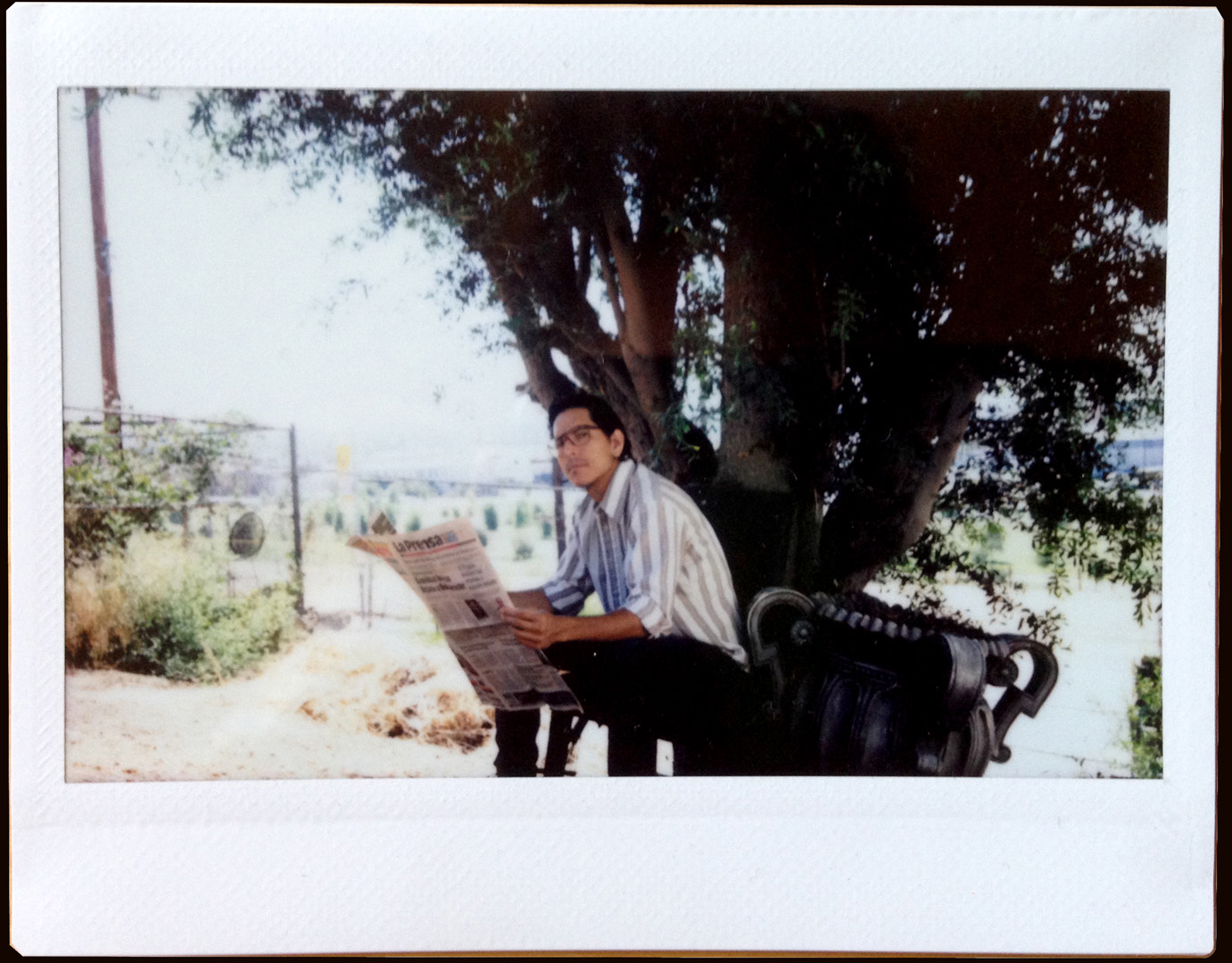[dropcap size=big]B[/dropcap]efore becoming a founding member and bassist of Chicano Batman, Eduardo Arenas was an urban planning student. He’d won a McNair Scholarship as a USC student. And when he was there 18 years ago, he’d give presentations that came with a warning: Gentrification is coming to Boyle Heights.
“Nobody really took me seriously, because gentrification was really happening to Chicago and New York, Philadelphia,” recalled Eduardo Arenas. Perhaps others couldn’t foresee developers getting interested in his neighborhood of Boyle Heights.
But Eduardo saw the signs.
“I was studying precursors like a beautiful housing stock, architectural housing value in Boyle Heights, density, close to downtown, it has great transportation...We have cultural landmarks, you know, we have, we have shops, everything's built-in already,” said Arenas. Nearly two decades later, Arenas lent his musical prowess and urban planning expertise to L.A. TACO and Neon Hum Media to create the perfect theme song for Smoke Screen: The Sellout, a podcast about a politician who sold out the community that raised him.
This enchanting theme song is a cumbia rebajada. It’s catchy, it’s foreboding, it’s humorous, but most importantly it’s a track that tempts one to dance, even if tuning in at work. Arenas said participating in the project felt like coming full circle because of his background as an artist, as someone from Boyle Heights, and as a former urban planner. “So bam, you get the right guy,” said Arenas. Arenas recalled listening to an early mix of the first episode of The Sellout that Neon Hum Media sent him.
“I was excited. I was like fuck this fool!” said Arenas.
He was moved by the voices of residents who felt betrayed by former councilman Jose Huizar. Listening to community members reminded him of his days working in urban planning. He lamented that community members are supposed to be involved in city decisions but often aren’t in working-class communities like Boyle Heights and South East L.A. because of poor outreach. After hearing a bit about Huizar’s alleged backdoor dealings in the initial draft of Episode one, Arenas was reminded of why he left his career in urban planning.
“I was thinking nah, this is not the way this is not the way I this is exactly why I got out of politics and planning because this is not how you serve your community,” said Arenas. “It’s like a piñata, I get the first swing? Yea I love it, lemme hit him with a cumbia rebajada,” Arenas added. In 2010, Arenas left urban planning after years in the field. He was tired of being unable to help residents in the city he worked for and tired of watching developers make buildings that had little to no low-income units, causing longtime residents to get displaced. He pursued a career in music, instead. He said he made this decision in order to keep his “vision intact.” And today, he feels that he’s able to have a larger impact with his music which often has political messages in both his solo career and his work in Chicano Batman.
Eduardo got into music as a child, when his cousin gave him a guitar she dug out of a trash can. It only had two strings, but Eduardo started playing it regardless. After taking guitar lessons, Eduardo was unstoppable. He set his sights on becoming the best guitarist at his high school while maintaining straight As.
Music became an escape for Arenas.
“I think we want to create an alternate reality where we can get our angst out and be accepted,” explained Arenas.
As for what inspires his music, Arenas said that he’s nostalgic for the times that his family was all together some decades ago, and that in order to cope with the separation anxiety he sometimes feels, he tells stories through cumbia.
“Cumbia is the most accessible and most loving fucking rhythm on Earth. And my people get it,” said Arenas.
Even though Arenas saw gentrification coming to Boyle Heights sooner than many, there’s one recent sign that infuriates all over again. “I remember the first time, what really upset me to the core is when I heard the nickname BoHi,” said Eduardo. He said that realtors and developers used the term “BoHi'' when they were trying to sell houses to buses of tourists. In 2000, when he was just 18, Arenas actually met Jose Huizar. They both attended a conference. Huizar was on the school board and Arenas was a student at USC.
“I had a beer with him. All underaged,” Arenas chuckled.
At the time, Arenas thought it was nice to see a Boyle Heights local make a name for himself. He followed Huizar’s career from his days on the school board to his time on the city council. But now, when Arenas thinks about Huizar’s alleged corruption, it makes him angry.
Arenas had choice words for politicians of color who sell out their communities. “I don't care if you're Brown. If you’re not down. No. You will be dealt with. It could be anybody. This time, the villain is Huizar,” Arenas said.
Arenas told L.A. TACO and Neon Hum Media that he thinks that politicians who betray their communities are harmful. “[We need to] take out the bad seeds, so that we don't have this level of mistrust in our community, and we could grow healthier without the trippers,” Arena says.







